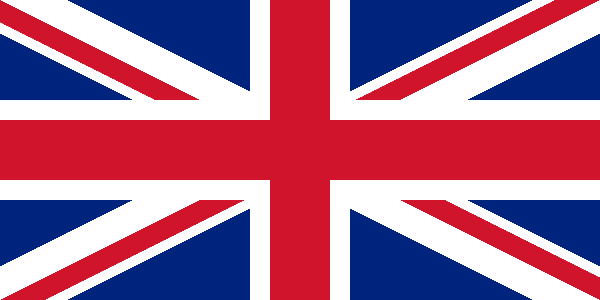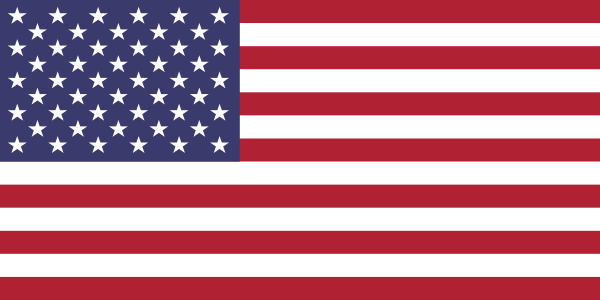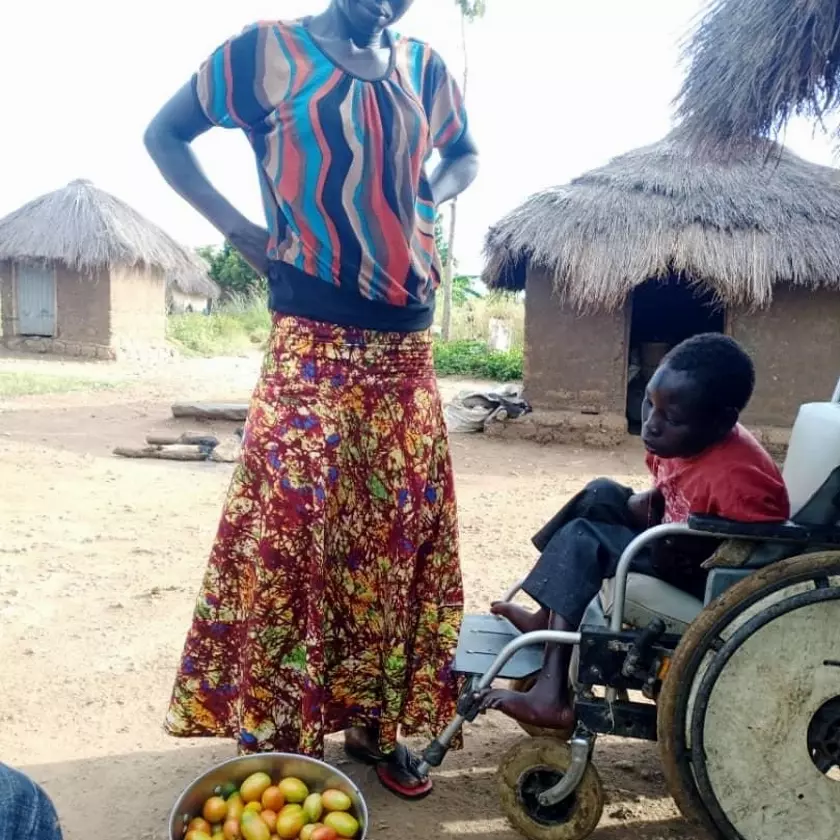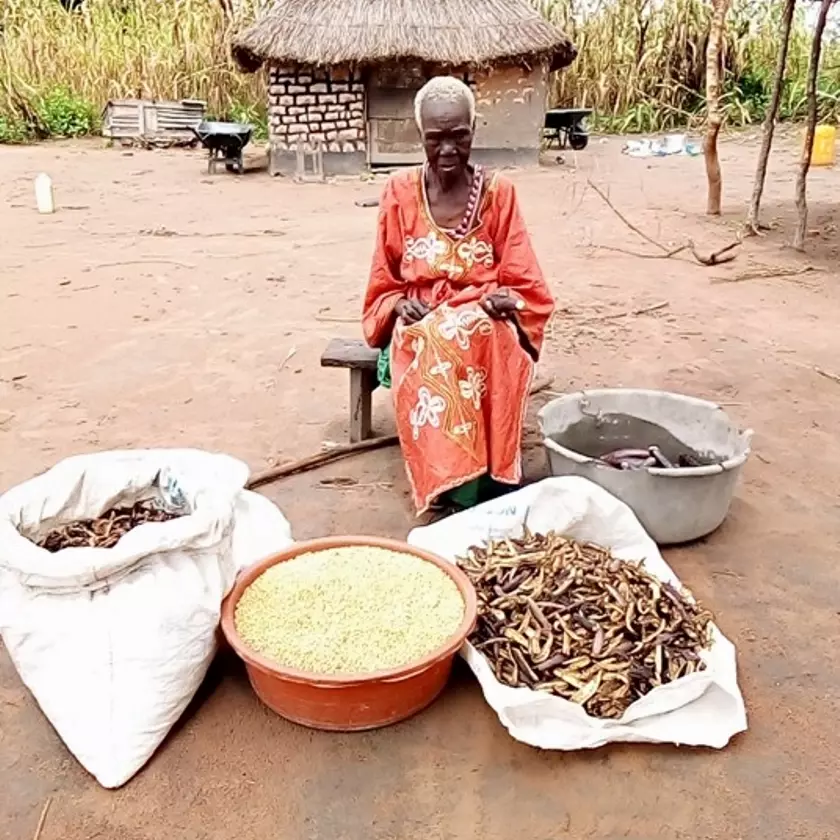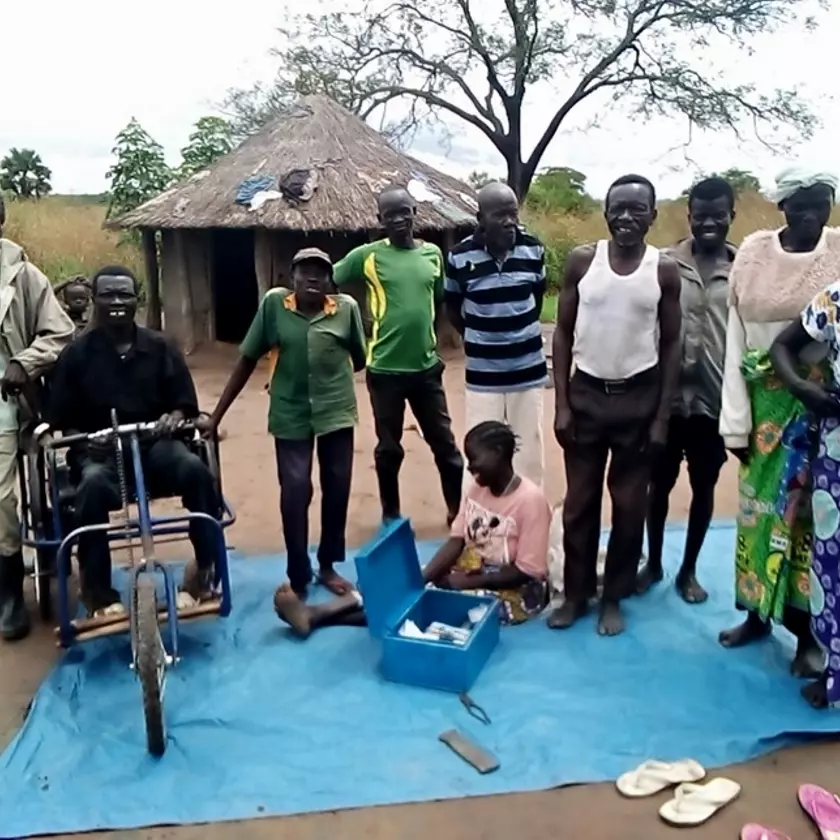Setting the table for 5,500 friends this Christmas
30 November 2022 00:00
In early 2022, HHA implemented a huge emergency food aid and agriculture training project in North Uganda, supporting over 1,000 households. As those families now begin to harvest their crops, our East Africa Director Jemina, reflects on the impact of our biggest nutrition project to date.
It would not be an overstatement to say that 2022 has been another difficult year for many. The fear and worry we may feel around many global and domestic events is often exacerbated by the constant stream and absorption of heavy or negative news.
It has also been an incredibly difficult year for our brothers and sisters in East Africa, with climate-related droughts, soaring prices of commodities and fuel and rapidly increasing food insecurity in the region. It has been reported that parts of East Africa are on the brink of one of the worst famines in 40 years. Hunger is currently likely to claim a life every 36 seconds in this region.
Christmas can often be a time for reflection. Looking back at 2022, the HHA East Africa team have also seen an abundance of good news, beautiful stories, lives changed, and most importantly… hope.
Thanks to funding from a private foundation of HHA, our emergency food aid and agriculture training project in North Uganda has been supporting 1,100 households (approx. 5,500 individuals), Most of these households have a family member with a disability or other vulnerabilities. This project has provided them with emergency food aid, agricultural land, tools, seeds and training so they can grow their own crops and produce enough food to feed their families and create a small income. This may sound like a simple gesture, but it has been such a life-changing opportunity for many families!
We would like to share with you just a few of the good news stories from this impactful project. Whilst the need persists, these stories have given us great encouragement and we hope they will help spread joy and hope and encourage you to continue supporting our work in East Africa.
Thanks to this project, our generous donors, our hard-working team, and the support of all our friends in the UK and beyond, there are now 1,100 wonderful stories like these to share and more than 5,500 people whose lives have been touched this Christmas.
Bosco lives with his mother and 9 siblings in BidiBidi refugee settlement. He has polio paralysis.
As part of the HHA nutrition project the family planted maize, groundnut, soya beans, tomatoes, onion, amaranthus, eggplant, collard, okra and cabbage. Some of their crops are still growing, but they have already harvested some maize, tomatoes, and okra.
Bosco told us that before this project his family’s nutritional health was poor, as they use to depend solely on the World Food Programme food rations and were only able to eat one meal a day. Now, with the support of this project, his family are eating a balanced diet and can have three meals. Ladu’s family plan to add more land to their farm next year. Because of this project, Ladu has been able to go to school and the family has been able to purchase new clothes for him.
Agnes is 75 years old, she is a South Sudanese refugee living in Mijale. She planted maize, cassava, groundnuts, soya beans, tomatoes, okra, eggplant, collards, cabbage and amaranthus as part of the HHA nutrition project. Agnes and her family also received emergency food aid from HHA whilst waiting for the crops to grow.
With her harvest, Agnes has been able to feed her family as well as selling some of the eggplants and soya beans. Agnes feels her general body health has improved and her family is now able to eat a balanced diet and have three small meals per day.
The Kobgo Disabled Farmers Group has 22 members, all refugees from South Sudan. The group was set up by members living with chronic illnesses, such as asthma and polio, as well as individuals who needed support due to their age.
The group planted maize, cassava, groundnuts, soya beans, tomatoes, okra, eggplant, collards, cabbage and amaranthus, as well as receiving emergency food aid whilst waiting for their crops to grow. The group members worked as a team, planting and harvesting together. They harvested more than 450kg of maize and 120kg of soybeans.
Most of the crops were used to feed the group members families and some were sold to help them send their children to school and purchase medication. The group members also set up a Village Savings and Loan Association, where they can borrow funds in case of emergencies such as health issues, buy more seeds or start small businesses.
The group members were not only grateful for the new opportunities and improved health and wellbeing of their families, but they were also very happy this project has brought them together as a group to support each other.
